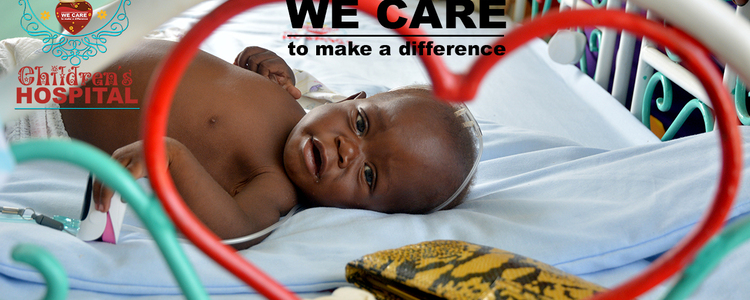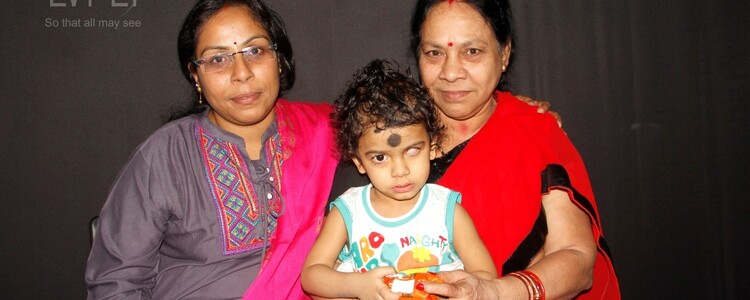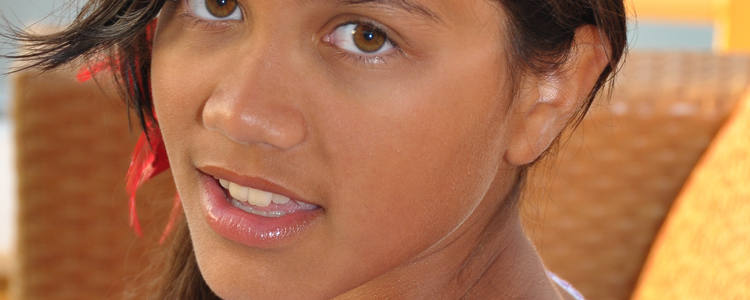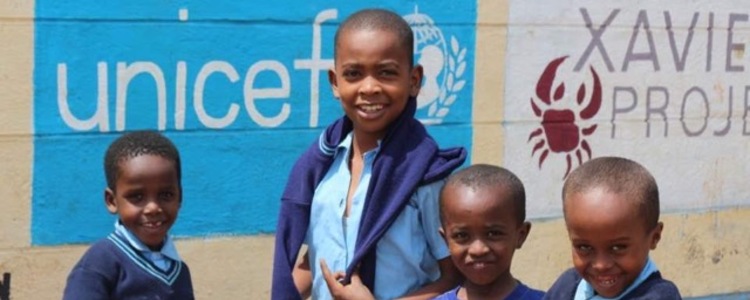
Whisper
Whisper‘s new Magical Children's Hospital in Jinja, Uganda supports and provides essential medical attention for children up to age of 13 from some of the poorest areas of the country, often with serious conditions.ImpactA grant of £5000 buys essential medicines, medical supplies and often lifesaving drugs. Update - Grant Provided by One Kind Act 21 June 2019A grant of £1000 was made as a result of fund-raising efforts by OKA Supporter, Amrisha Prashar, at a recent Marathon event (see EVENTS page for details) to buy much-needed medication and drugs to treat 400+ patients. Update - Grant Provided by One Kind Act 8th January 2017A grant of £5000 was made to provide medical attention and drugs to children at the hospital. DetailsTreating 30-40 children daily, Whisper has facilities for a parent to stay with their sick child at the 20-bed hospital. Children are brought here from up to 4 hours drive away and no one is turned away. Outpatients are encouraged to pay a nominal amount of £6 but are still treated if they cannot afford this. They often deal with serious conditions like TB, HIV, severe malaria and malnutrition. Whisper’s hospital saves so many lives because of the high quality of care. Uganda has good (if scarce) medical staff but are routinely let down by poor support services and standards of care. For example, power cuts are common and in government hospitals, small children on oxygen routinely die when the power fails. Whisper’s inpatient mortality rate has been very low by local standards, with just 5 unavoidable deaths since the hospital openedAbout One Kind ActOne Kind Act Change Communities and lives of others globally who suffer as a result of Poverty of Health, Nutrition and Education and may have Fallen Through The Net of the larger charities. Learn More here

Miriam Hyman Memorial Trust
Miriam Hyman was one of the 52 people killed in the "7/7" London bombings of 7th July 2005.Miriam's memorial is The Miriam Hyman Children's Eye Care Centre (MHCECC) within the L V Prasad Eye Institute in Odisha, India. Miriam appreciated her own eye care services.The commonest childhood cancer is Retinoblastoma – eye cancer. Typically, the treatment requires 6 cycles of chemotherapy, 6 times examination under anaesthesia and at least 2 times CT scan. The total treatment cost of each child is Rs 48,000.The MH CECC in Bhubaneswar, Odisha, typically treats 17-20 children in a year with retinoblastoma.ImpactA grant of £5000 would treat up to 10 children with retinoblastoma at LVPEI.Update - Grant Provided by One Kind Act 02 December 2018A grant of £5000 was made in support of the Miriam Hyman Children's Eye Care Centre, in Bhubaneswar, India. Details LVPEI established a tertiary eye care facility in Bhubaneswar, the capital city of the eastern Indian state of Odisha, in July 2006. The centre has all clinical and laboratory facilities (Pathology) for care of all types of eye cancer. Retinoblastoma is the commonest eye cancer in children. It constitutes nearly 3% of all childhood malignancies. Nearly 66% of cases are diagnosed before the age of 2 years and 95% before the age of 5 years. It has a much higher incidence in India (6-10 cases per million population) compared to the USA and Europe (2-5 cases per million population). It is among the top 5 cancers in children in India. The success of treatment lies in 1. Early diagnosis by clinical examinati0n (dilated eye exam, and imaging- Fundus photo, B Scan, CT/MRI scan)2. Laser and/or cryo therapy3. Chemotherapy in combination with laser/cryotherapy4. Radiotherapy with or without chemotherapyMost benefit is derived from Laser, Cryo and Chemotherapy either alone or in combination. Despite these treatment modalities and expected cure, the survival rate in India (and other similar developing countries) is significantly lower compared to the more developed countries. The challenges faced in our care (and India) are (1) Late presentation due to ignorance of both families of people affected and the referring physician, and (2) the cost of care Facts about our experience with retinoblastoma at MH CECCAnnual volume of new cases: 25- 30 new casesEconomically under privileged annul volume: 20-22 new casesBoth eyes involvement: 25-30%Treatment modalities: Systemic and local/intraocular chemotherapy, focal laser therapy, cryotherapy and surgery. Eye salvage rates: 80% Five-year survival rates: 75%. Patient drop out between treatment: 5-8% (economic reasons)CASE STUDIES1) Ashutosh Mishra, Puri, Odisha, IndiaAshutosh (seen above with his mother and maternal grandmother) was only 3 months old when he presented to us with retinoblastoma (the commonest intraocular cancer in very young children and potentially lethal if not treated) in both eyes. The left eye had very advanced tumor and there was no scope of visual recovery in that eye. Added to this was also a risk of tumor spread out of the eye. We counseled his parents that it would be best for that eye to be surgically removed. Though devastated by the news, his mother showed exemplary courage in agreeing to go ahead with this decision. The tumor in his right eye was successfully treated by multiple cycles of chemotherapy and laser applications. This timely treatment ensured that we were able to save his right eye. Today Ashutosh has good vision in his right eye. He is preparing to join school and can now look forward to leading as normal a life as any other child.The LV Prasad Eye Institute at Bhubaneswar in Odisha sees around 25 such new retinoblastoma patients every year and provides protocol based management to these children with this potentially lethal cancer of the eyes. Our fight continues against the low levels of awareness of this cancer in the community, the advanced disease presentation that we often get to see and the resource constraints that we face on a regular basis. In spite of all this, it is gratifying to note that we have been able to make a difference to the lives of children like Ashutosh.2) Junaid Mohammed, Jatni, Odisha, IndiaJunaid came to us with retinoblastoma (the commonest intraocular cancer in very young children and potentially lethal if not treated) in both eyes when he was about 1 year old. On examination, he was found to have moderately advanced tumor in both of his eyes. He was treated with multiple cycles of chemotherapy and laser therapy. We were able to salvage both his eyes as the tumors regressed well with the treatment that was carried out. He has been on regular follow up with us for the past 2 years to monitor the status of both his eyes. Meanwhile, he has grown up into a mischievous lad who is endearing to all who know him and is looking forward to joining school very soon.The LV Prasad Eye Institute at Bhubaneswar in Odisha sees around 25 such new retinoblastoma patients every year and provides protocol based management to these children with this potentially lethal cancer of the eyes. Our fight continues against the low levels of awareness of this cancer in the community, the advanced disease presentation that we often get to see and the resource constraints that we face on a regular basis. In spite of all this, it is gratifying to note that we have been able to make a difference to the lives of children like Junaid.About One Kind ActOne Kind Act Change Communities and lives of others globally who suffer as a result of Poverty of Health, Nutrition and Education and may have Fallen Through The Net of the larger charities. Learn More here

The Jemima Layzell Trust
The Jemima Layzell Trust helps the provision of treatment and care of young people suffering as a result of brain injury, whilst also raising awareness and educating the public on the risk and impact of brain injury.ImpactFunds would meet towards the enormous need of providing physical and neurological rehab facilities to children living here in the UK after suffering life-changing injuries to the brain. Update - Grant Provided by One Kind Act 5th March 2018A grant of £25,000 was made to assist with the support and provision of specialist equipment requested by various trusts to detect the early detection of strokes in young children, to encourage children with brain injury to interact whilst developing motor skills. Also provision of specialist beds, baths and supportive chairs to support the well-being of children at the same time providing opportunities for recovery.DetailsJemima was helping set up for her mum's birthday party. She was excited and happy, setting up chairs, when she suddenly screamed in agony and collapsed. Jemima had suffered a ruptured brain aneurysm and died four days later in hospital. A family friend was killed in a car accident just weeks before which led to a conversation by young Jemima about organ donation. In death, Jemima saved the lives of 8 people and restored the sight of 3 more. She holds the UK record of organ recipients. She was 13 years old.Despite their devastation, her parents ensured Jemima leaves a proud legacy. The Jemima Layzell Trust helps fund the provision of treatment and care for young people suffering from brain injury. They also encourage organ donation. Funds raised are spent on specialist equipment for children who are unable to afford the treatment following brain trauma. Advised by professionals they judge each case individually and provide the most suitable equipment required, improving the quality of lives beyond measure.One Kind Act granted them £25,000 towards various elements of equipment and treatment.About One Kind ActOne Kind Act Change Communities and lives of others globally who suffer as a result of Poverty of Health, Nutrition and Education and may have Fallen Through The Net of the larger charities. Learn More here

Xavier Project
Xavier Project is a not-for-profit organisation that works to improve the rights and protection of refugees in East Africa through formal education in a safe environment. Impact£600 would pay for the fees for 1 refugee child in Kenya and Uganda to attend secondary schooling for one year. Update - Grant Provided by One Kind Act 16th December 2017A grant of £6,121 was made to equal the funds raised by Rupa Lakha at her Danceathon event held on Sunday 12th November. Raising over £6000 has meant that 10 children have benefited from this grant.DetailsXavier Project believes that everyone has the right to equal opportunities and protection wherever they live and whatever their background. Globally this right is denied to refugee and they believe education is the best tool to change this. They work in Kenya and Uganda to make sure that refugees of all ages are able to access quality education so that they can integrate better into their host communities and build towards a better future for themselves and their families. They use pioneering education solutions to achieve this. The organisation was founded by Edmund Page in 2008 when he made a volunteering trip to Kampala and began sponsoring ten refugee students through primary school. The organisation now sponsors thousands of children through formal education. In Eastern Africa there is a refugee crisis rapidly unfolding. War, violence and famine are causing thousands of vulnerable individuals - mainly women and children - to cross the borders in Kenya and Uganda from the Democratic Republic of Congo, Somalia, Ethiopia and in 2017 most significantly from South Sudan. Uganda, which is the same size as the UK, is now home to 1.4 million refugees with 1,000-2,000 South Sudanese crossing the border every week. Xavier Project's work now and in the future has never been more importantAbout One Kind ActOne Kind Act Change Communities and lives of others globally who suffer as a result of Poverty of Health, Nutrition and Education and may have Fallen Through The Net of the larger charities. Learn More here

